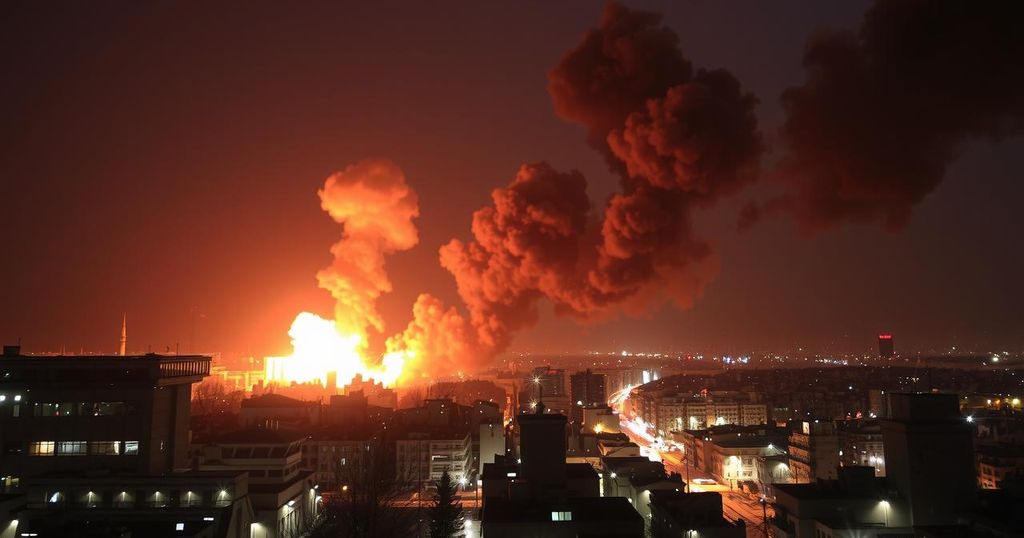Regional Response to the Fall of al-Assad Regime in Syria

Israeli airstrikes in Syria have elicited condemnation from the Arab League, which seeks UN Security Council intervention. Meanwhile, Turkey resumes embassy operations in Damascus, aiming for inclusive governance and the elimination of the YPG. Celebrations erupt in Syria following the Assad regime’s fall, as events unfold with the transfer of a US citizen to American authorities amid a changing political landscape.
In the ongoing turmoil in Syria, Israeli airstrikes have persisted, prompting the Arab League to denounce Israel’s appropriation of Syrian border territories and call for a meeting of the United Nations Security Council. Concurrently, Turkey has announced the resumption of its embassy operations in Damascus, with Foreign Minister Hakan Fidan expressing Ankara’s desire for an inclusive governance structure in Syria that protects minority rights. A significant strategic objective for Turkey is the dismantling of the People’s Protection Units (YPG), which it categorizes as a terrorist organization, despite the YPG being a key ally of the United States in the fight against ISIS in Syria.
Celebrations erupted across Syria coinciding with the first Friday following the fall of the Assad regime, which had held power for decades. Citizens traveled to Damascus to join prayers at the historic Umayyad Mosque, one of the most prominent mosques globally. In a related development, it has been reported that US citizen Timmerman was handed over to American authorities following his release by opposition forces, raising further questions about the new political landscape in Syria. As events continue to unfold, Al Jazeera remains committed to providing comprehensive coverage and analysis.
The situation in Syria has dramatically evolved following the recent fall of the Bashar al-Assad regime, leading to international reactions and geo-political maneuvers. Israel’s military actions in Syria, particularly concerning airstrikes, have provoked condemnation from regional organizations, highlighting ongoing tensions surrounding territorial control. Additionally, Turkey’s re-engagement in Syrian affairs signals a shift in diplomatic dynamics as it pursues specific objectives, including counteracting terrorist organizations like the YPG. The aftermath of the Assad regime’s collapse is marked by public expressions of joy and shifting allegiances among rebel groups, further complicating the region’s already intricate geopolitical landscape.
In summary, the recent airstrikes by Israel and the restoration of Turkish diplomatic relations with Syria represent significant shifts in the regional geopolitical landscape. The Arab League’s condemnation of Israeli actions demonstrates the ongoing struggles over territorial integrity in Syria, while Turkey’s strategic goals underscore the complexities of international involvement in Syrian affairs. As celebrations unfold following the fall of the Assad regime, the region’s future remains uncertain amidst the evolving political climate and conflict dynamics.
Original Source: www.aljazeera.com








